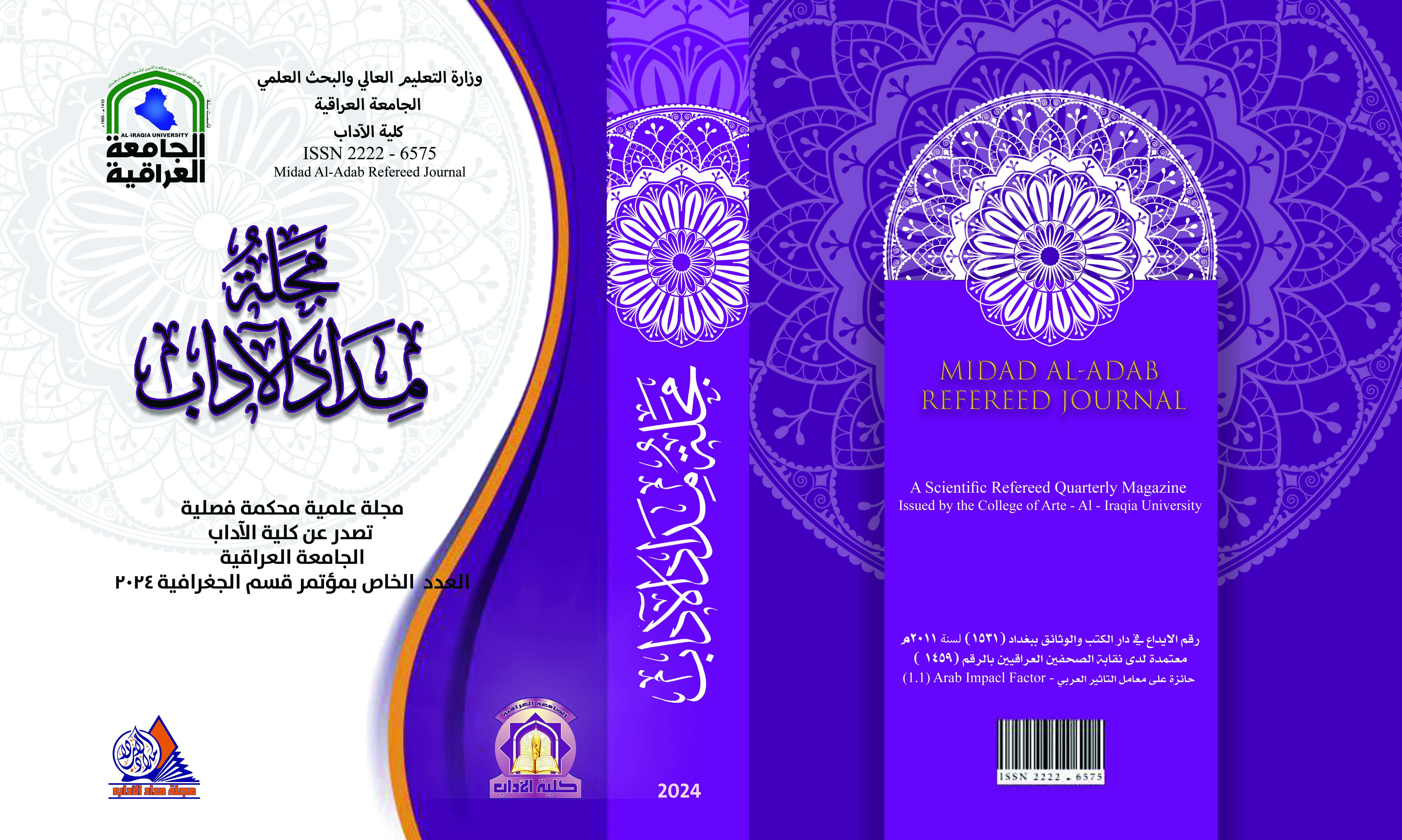Urban alienation and its impact on the urban environment of the city of Khalidiya
DOI:
https://doi.org/10.58564/ma.v14iالعدد%20الخاص%20بمؤتمر%20قسم%20الجغرافية.1425Keywords:
Keywords: the city, urban polarization, urban alienation, urban dominationAbstract
The development witnessed by the cities of Anbar Governorate, especially the cities of Ramadi and Fallujah, led to an increase in attracting the population and various economic activities to them, and thus increased their volumes, which made them large urban centers in the Anbar Governorate, as the geographical locations played a role that formed a link between them and the neighboring districts, which facilitated transportation and trade exchange By linking it to a network of transportation routes, in addition to the concentration of most of the official departments, economic activities and services of various kinds, which gave these cities the characteristic of urban dominance over the small cities that follow in terms of size and function, and this urban polarization is seen from the central city, but in fact it is a process Urban alienation that small cities work to resist, and as a result, it is in favor of the dominant city, and the city of Khalidiya suffered from that because it was located between two large cities (Ramadi and Fallujah), which practiced the process of polarization, which was reflected in the city of Khalidiya through urban alienation
Downloads
Published
Issue
Section
License

This work is licensed under a Creative Commons Attribution-NonCommercial-NoDerivatives 4.0 International License.








